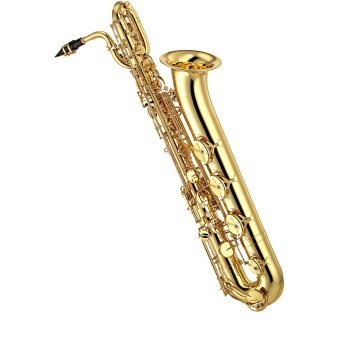Hi Steemit!
If you thought that this was a NSFW post, or something for +18 people, you should pay more attention to the title, because this time I'm going to talk about my favourite musical instrument, the saxophone.
The saxophone

Source
The saxophone is a woodwind musical instrument, single-reed, conic-shaped, build upon brass mainly. By blowing the mouthpiece, the reed starts to vibrate, and that vibration goes around all the sax, producing its sound. It also has a set of 20 to 23 holes around the tube to play the notes.
It was created around 1840 by the Belgian inventor Adolphe Sax. Sax wanted to cross some properties from the horn and the clarinet. He had some experience fixing and improving clarinets.
After he created the sax, he received a 15-year patent for it. It encompass 14 versions of the fundamental design, ranging several kinds of saxophones, from sopranino to contrabass.
From its beginning, the sax is a transposing instrument, a pitch notated for sax is different from the pitch that actually sounds, and that's because today saxophones are tuned in Bb or Eb. Before that, Sax made instruments that were tuned in F, Eb, Bb and some in C.
Along the tube there are up to 23 holes of different sizes, covered by pads and keys that produce an airtight seal on the tube. This mechanism alouds the player to play the notes by cutting or making longer the airpath thorught the tube.
The tube is usually very long and that's the reason of the curve-shape on its body.
Some saxophones brands are: Selmer, Yamaha, Yanagisawa, Buffet, etc.
The mouthpiece
The saxophone mouthpiece is similar to the clarinet mouthpiece. It's the part where the reed is attached to, normally wedge shaped. They are made up of ebony, hard rubber, metal and less frecuently wood.
Its size varies by saxophone type (from soprano to baritone), its camera and tip-opening varies according to the model of the company that makes them. Things like tip-opening (this is, distance between the tip of the mouthpiece to the reed), material made of, and shape, change sax players tone, from warm or brighter to darker tone.
Some saxophones mouthpieces brands are: Dukoff, Claude Lakey, Vandoren, Otto Link, Meyer, Berg Larsen, etc.
The reed

Source
The reed is a thin strip made from Arundo donax wood which vibrates when the player blows the woodwind instrument. That vibration generater by the air flux and the reed spreads along the sax to generate its characteristic sound. Just as mouthpieces, there are several kinds of reeds ordered by its strenght in a scale that goes from 1 to 4.
Choosing a specific strenght value for ourselves is not related to being a begginer or professional player. Instead it is related to the mouthpiece, sax, and to be confortable with all the set.
They are described as the soul of the instrument. A good reed helps the player with the tone and sound, while a bad reed may be an obstacle for the performer, and this is something that happens merely often in woodwinds instruments.
In recent years, companies have created synthetic reeds other materials than wood, such as plastic, that changes somehow the sax tone and are far more durable.
Some sax reeds brands: Vandoren, Rico, D'addario, etc.
The ligature
The reed is attached to the mouthpiece with the ligature. Some brands have developed several kinds of ligatures, some more complex than others, to give a final touch to the saxophonist set.
Some ligature brands: the well known, BG and Rovner.
Saxophone types
The main family of the saxophone is integrated by:
Soprano sax
 Selmer SS600 - Source
Selmer SS600 - Source The only straight sax of the family, as seen in the image above, althought there are some curve soprano sax. It is a transposing instrument tuned in Bb, written a major second aboved real pitch.
Here you can listen to some soprano sax, I choose The ruby and the pearl from Brandford Marsalis, very expressive tune and player.
Alto sax

Alto Selmer Mark VII - Source
It is the second member of the family by ordering the members from the upper to the lower register, and it's maybe the most known member of it. That's because of it curved shaped. It is also a transposing instrument, this time, tuned in Eb, written a major sixth above the real pitch.
You can listen a Cannonball Adderley playing along Miles Davis in the tune Autumn Leaves below
Tenor sax

Tenor Selmer Mark VI - Source
It is the third member of the family, very common sax. Its main difference from the alto sax is its size, the tenor sax it's a bigger and has a longer neck. It is a transposing instrument, tuned in Bb, written a major ninth above real pitch.
Below it's the video of Joshua Redman's tune Jazz Crimes
Baritone sax

Baritone Yamaha YBL 52 - Source
It is the sax with the lowest notes, and therefore, the biggest sax. Popularized among many such as Lisa Simpson from The Simpsoms TV show. It is a transposing instrument, tuned in Eb, written a major thirteenth above real pitch.
Below is YouTube video of Lisa Simpson playing Take five
Other types of saxophones
These are not all the sax that are around there. The sax family also have some extreme register members, like the Sopranino or the bass saxophone.
It's use
We're talking about an instrument that, besides its limited initial register, it's very useful. Its timbre and loudness probably were the things that left them away from the orchestra, but since the very beginnings of the sax, many composers wrote songs, tunes, and concertos for saxophones. You just have to listen to Mussorsky on Pictures at an exhibition or Ravel in Bolero.
The sax is also an important instrument in the jazz genre. With Big Bands becoming popular in the '20s, the sax became an essential instrument for that genre, born at US, and from there went to the popular music.
I've left here a lot of jazz videos, but you can hear below some sax playing in classical academic music and also latin music.
A versatile instrument.

Resteemed, your post will appear in the next curation with a SBD share for you!
Your post has been supported and upvoted from the Classical Music community on Steemit as it appears to be of interest to our community. You can find details about us below.

The classical music community at #classical-music and Discord.
Follow our community accounts @classical-music and @classical-radio.
Follow our curation trail (classical-radio) at SteemAuto or help us out with a delegation!
Congratulations! This post has been upvoted from the communal account, @minnowsupport, by leoboccardo from the Minnow Support Project. It's a witness project run by aggroed, ausbitbank, teamsteem, theprophet0, someguy123, neoxian, followbtcnews, and netuoso. The goal is to help Steemit grow by supporting Minnows. Please find us at the Peace, Abundance, and Liberty Network (PALnet) Discord Channel. It's a completely public and open space to all members of the Steemit community who voluntarily choose to be there.
If you would like to delegate to the Minnow Support Project you can do so by clicking on the following links: 50SP, 100SP, 250SP, 500SP, 1000SP, 5000SP.
Be sure to leave at least 50SP undelegated on your account.
Resteemed, your post will appear in the next curation with a SBD share for you!
Your post has been supported and upvoted from the Classical Music community on Steemit as it appears to be of interest to our community. You can find details about us below.

The classical music community at #classical-music and Discord.
Follow our community accounts @classical-music and @classical-radio.
Follow our curation trail (classical-radio) at SteemAuto or help us out with a delegation!
This post was shared in the Curation Collective Discord community for curators, and upvoted and resteemed by the @c-squared community account after manual review.
That's an informative and educational post, thanks! keep up the good work